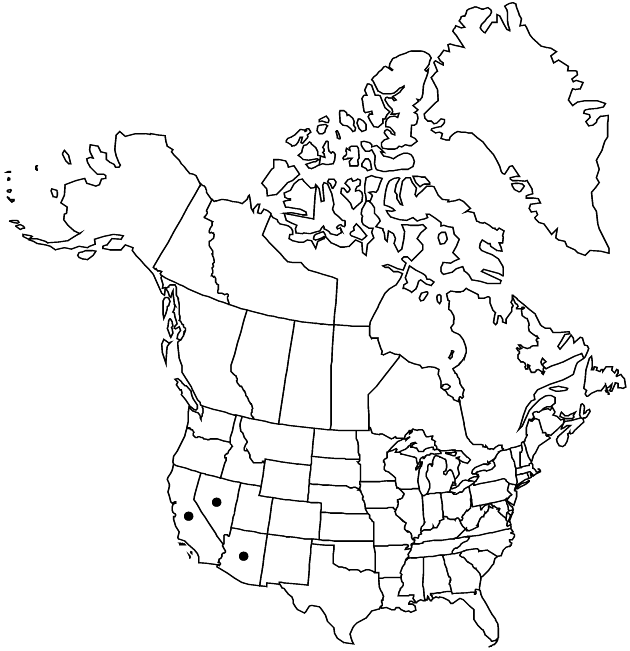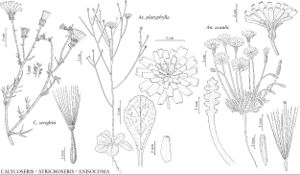Difference between revisions of "Anisocoma acaulis"
Boston J. Nat. Hist. 5: 111, plate 13, figs. 7–11. 1845.
Common names: Scalebud
Illustrated
imported>Volume Importer |
imported>Volume Importer |
||
| Line 51: | Line 51: | ||
|publication year=1845 | |publication year=1845 | ||
|special status=Illustrated | |special status=Illustrated | ||
| − | |source xml=https:// | + | |source xml=https://bitbucket.org/aafc-mbb/fna-data-curation/src/2e0870ddd59836b60bcf96646a41e87ea5a5943a/coarse_grained_fna_xml/V19-20-21/V19_462.xml |
|tribe=Asteraceae tribe Cichorieae | |tribe=Asteraceae tribe Cichorieae | ||
|genus=Anisocoma | |genus=Anisocoma | ||
Latest revision as of 19:52, 5 November 2020
Leaves: blades 2–7 cm, lobes oblong to triangular, abaxially ± floccose-tomentose, glabrate in age. Heads 3–5+ cm diam., nodding in bud. Paleae 7-–13 mm, persistent after cypselae have fallen. Involucres broadly cylindric to campanulate, 15–35 mm. Phyllaries often with reddish tips and dots, outer broadly rounded, 2–6 mm, inner 15–35 mm. Cypselae 4–7 mm; pappi 20–27 mm. 2n = 14.
Phenology: Flowering Mar–May.
Habitat: Sandy washes, dry slopes, chaparral, pine-oak-juniper woodlands, montane coniferous forests
Elevation: 20–2400 m
Distribution

Ariz., Calif., Nev., Mexico (Baja California).
Discussion
Anisocoma acaulis grows on the southwestern fringe of the Great Basin and in the Mojave and Sonoran deserts.
Selected References
None.
Lower Taxa
None.
